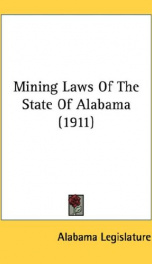alabama

Alabama /ˌæləˈbæmə/ (help·info) is a state located in the southeastern region of the United States of America. It is bordered by Tennessee to the north, Georgia to the east, Florida and the Gulf of Mexico to the south, and Mississippi to the west. Alabama ranks 30th in total land area and ranks second in the size of its inland waterways. The state ranks 23rd in population with almost 4.6 million residents in 2006.[4] From the American Civil War until World War II, Alabama, like many Southern states, suffered economic hardship, in part because of continued dependence on agriculture. White rural interests dominated the state legislature until the 1960s, while urban interests and African Americans were underrepresented.[5] Following World War II, Alabama experienced significant recovery as the economy of the state transitioned from agriculture to diversified interests in heavy manufacturing, mineral extraction, education, and technology, as well as the establishment or expansion of multiple military installations, primarily those of the U.S. Army and U.S. Air Force. The state has heavily invested in aerospace, education, health care, and banking, and various heavy industries including automobile manufacturing, mineral extraction, steel production and fabrication. Alabama is unofficially nicknamed the Yellowhammer State, which is also the name of the state bird. Alabama is also known as the "Heart of Dixie". The state tree is the Longleaf Pine, the state flower is the Camellia. The capital of Alabama is Montgomery, and the largest city by population is Birmingham. The largest city by total land area is Huntsville. The oldest city is Mobile. The Alabama, a Muskogean tribe, which resided just below the confluence of the Coosa and Tallapoosa Rivers on the upper reaches of the Alabama River,[6] served as the etymological source of the names of the river and state. In the Alabama language, the word for an Alabama person is Albaamo (or variously Albaama or Albàamo in different dialects; the plural form "Alabama persons" is Albaamaha).[7] The word Alabama is believed to have originated from the Choctaw language[8] and was later adopted by the Alabama tribe as their name.[9] The spelling of the word varies significantly between sources.[9] The first usage appears in three accounts of the Hernando de Soto expedition of 1540 with Garcilasso de la Vega using Alibamo while the Knight of Elvas and Rodrigo Ranjel wrote Alibamu and Limamu, respectively.[9] As early as 1702, the tribe was known to the French as Alibamon with French maps identifying the river as Rivière des Alibamons.[6] Other spellings of the appellation have included Alibamu, Alabamo, Albama, Alebamon, Alibama, Alibamou, Alabamu, and Allibamou.[9][10][11][12] Although the origin of Alabama was evident, the meaning of the tribe's name was not always clear. An article without a byline appearing in the Jacksonville Republican on July 27, 1842, originated the idea that the meaning was "Here We Rest."[9] This notion was popularized in the 1850s through the writings of Alexander Beaufort Meek.[9] Experts in the Muskogean languages have been unable to find any evidence that would support this translation.[6][9] It is now generally accepted that the word comes from the Choctaw words alba (meaning "plants" or "weeds") and amo (meaning "to cut", "to trim", or "to gather").[8][9][13] This results in translations such as "clearers of the thicket"[8] or even "herb gatherers"[13][14] which may refer to clearing of land for the purpose of planting crops[10] or to collection of medicinal plants by medicine men.[14] Among the Native American people once living in the area of present day Alabama were Alabama (Alibamu), Cherokee, Chickasaw, Choctaw, Creek, Koasati, and Mobile.[15] Trade with the Northeast via the Ohio River began during the Burial Mound Period (1000 BC-700 AD) and continued until European contact.[16] The agrarian Mississippian culture covered most of the state from 1000 to 1600 AD, with one of its major centers being at the Moundville Archaeological Site in Moundville, Alabama.[17][18] Artifacts recovered from archaeological excavations at Moundville were a major component in the formulation of the Southeastern Ceremonial Complex.[19] Contrary to popular belief, this development appears to have no direct links to Mesoamerica, but developed independently. This Ceremonial Complex represents a major component of the religion of the Mississippian peoples, and is one of the primary means by which their religion is understood.[20] The French founded the first European settlement in the state with the establishment of Mobile in 1702.[21] Southern Alabama was French from 1702 to 1763, part of British West Florida from 1763 to 1780, and part of Spanish West Florida from 1780 to 1814. Northern and central Alabama was part of British Georgia from 1763 to 1783 and part of the American Mississippi territory thereafter. Its statehood was delayed by the lack of a coastline; rectified when Andrew Jackson captured Spanish Mobile in 1814.[22] Alabama was the twenty-second state, admitted to the Union in 1819. Its constitution provided for universal suffrage for white men. Alabama was part of the new frontier in the 1820s and 1830s. Settlers rapidly arrived to take advantage of its fertile soil. Planters brought slaves with them, and traders brought in more from the Upper South as the cotton plantations expanded. The economy of the central "Black Belt" was built around large cotton plantations whose owners built their wealth on slave labor. It was named for the dark, productive soil.[23] Elsewhere poor whites were subsistence farmers. According to the 1860 census, enslaved Africans comprised 45% of the state's population of 964,201. There were only 2,690 free persons of color. In 1861 Alabama declared its secession from the Union and joined the Confederate States of America. While few battles were fought in the state, Alabama contributed about 120,000 soldiers to the Civil War. All the slaves were freed by 1865.[24] Following Reconstruction, Alabama was restored to the Union in 1868. After the Civil War, the state was still chiefly rural and tied to cotton. Planters resisted working with free labor and sought to re-establish controls over African Americans. Whites used paramilitary groups, Jim Crow laws and segregation to reduce freedoms of African Americans and restore their own dominance. In its new constitution of 1901, the legislature effectively disfranchised African Americans through voting restrictions. While the planter class had engaged poor whites in supporting these efforts, the new restrictions resulted in disfranchising poor whites as well. By 1941, a total of more whites than blacks had been disfranchised: 600,000 whites to 520,000 blacks. This was due mostly to effects of the cumulative poll tax.[25] The damage to the African-American community was pervasive, as nearly all its citizens lost the ability to vote. In 1900, fourteen Black Belt counties (which were primarily African American) had more than 79,000 voters on the rolls. By June 1, 1903, the number of registered voters had dropped to 1,081. In 1900, Alabama had more than 181,000 African Americans eligible to vote. By 1903, only 2,980 had managed to "qualify" to register, although at least 74,000 black voters were literate. The shut out was long-lasting.[25] The disfranchisement was ended only by African Americans leading the Civil Rights Movement and gaining Federal legislation in the mid-1960s to protect their voting and civil rights. The Voting Rights Act of 1965 also protected the suffrage of poor whites. The rural-dominated legislature continued to underfund schools and services for African Americans in the segregated state, but did not relieve them of paying taxes.[23] Continued racial discrimination, agricultural depression, and the failure of the cotton crops due to boll weevil infestation led tens of thousands of African Americans to seek out opportunities in northern cities. They left Alabama in the early 20th century as part of the Great Migration to industrial jobs and better futures in northern industrial cities. The population growth rate in Alabama (see "Historical Populations" table below) dropped by nearly half from 1910–1920, reflecting the effect of outmigration. At the same time, many rural whites and blacks migrated to the city of Birmingham for work in new industrial jobs. It experienced such rapid growth that it was nicknamed "The Magic City". By the 1920s, Birmingham was the 19th largest city in the U.S. and held more than 30% of the population of the state. Heavy industry and mining were the basis of the economy.[26] Despite massive population changes in the state from 1901 to 1961, the rural-dominated legislature refused to reapportion House and Senate seats based on population. They held on to old representation to maintain political and economic power in agricultural areas. In addition, the state legislature gerrymandered the few Birmingham legislative seats to ensure election by persons living outside of Birmingham. One result was that Jefferson County, home of Birmingham's industrial and economic powerhouse, contributed more than one-third of all tax revenue to the state. Urban interests were consistently underrepresented in the legislature. A 1960 study noted that because of rural domination, "A minority of about 25 per cent of the total state population is in majority control of the Alabama legislature."[5] Because of the long disfranchisement of African Americans, the state continued as one-party Democratic for decades. It produced a number of national leaders. Industrial development related to the demands of World War II brought prosperity.[23] Cotton faded in importance as the state developed a manufacturing and service base. In the 1960s under Governor George Wallace, many whites in the state opposed integration efforts. During the Civil Rights Movement, African Americans achieved a protection of voting and other civil rights through the passage of the national Civil Rights Act of 1964,[27] and the Voting Rights Act of 1965. De jure segregation ended in the states as Jim Crow laws were invalidated or repealed.[28]
do you like this author?
What readers are saying
What do you think? Write your own comment on this book!
write a commentWhat readers are saying
What do you think? Write your own comment on this author!
write a commentBook list

Revenue Code of the State of Alabama, 1911. Pub. by the Auditor
Series:
Unknown
Year:
Unknown
Raiting:
3/5
Book digitized by Google from the library of the University of Michigan and uploaded to the Internet Archive by user tpb.
Show more
add to favoritesadd In favorites

Roads, Bridges, Ferries and Water Courses: Laws in Force in Mobile County ...
Series:
Unknown
Year:
Unknown
Raiting:
5/5
Book digitized by Google from the library of the University of Michigan and uploaded to the Internet Archive by user tpb.
Show more
add to favoritesadd In favorites

Alabama Laws and Joint Resolutions
Series:
Unknown
Year:
Unknown
Raiting:
4/5
Book digitized by Google from the library of the University of California and uploaded to the Internet Archive by user tpb.
Show more
add to favoritesadd In favorites
Book list

Revenue Code of the State of Alabama, 1911. Pub. by the Auditor
Series:
Unknown
Year:
Unknown
Raiting:
3/5
Book digitized by Google from the library of the University of Michigan and uploaded to the Internet Archive by user tpb.
Show more
add to favoritesadd In favorites

Roads, Bridges, Ferries and Water Courses: Laws in Force in Mobile County ...
Series:
Unknown
Year:
Unknown
Raiting:
5/5
Book digitized by Google from the library of the University of Michigan and uploaded to the Internet Archive by user tpb.
Show more
add to favoritesadd In favorites

Alabama Laws and Joint Resolutions
Series:
Unknown
Year:
Unknown
Raiting:
4/5
Book digitized by Google from the library of the University of California and uploaded to the Internet Archive by user tpb.
Show more
add to favoritesadd In favorites

Public school laws of the state of Alabama : together with forms for teachers, officers and the Constitution of Alabama, and a revised list of county and city superintendents
Series:
Unknown
Year:
Unknown
Raiting:
3/5
Show more
add to favoritesadd In favorites

Constitution, State of Alabama: As Adopted by the Constitutional Convention, September 3rd, 1901 ...
Series:
Unknown
Year:
Unknown
Raiting:
2.5/5
Book digitized by Google from the library of the University of Michigan and uploaded to the Internet Archive by user tpb.
Show more
add to favoritesadd In favorites

The code of Alabama, adopted by act of the legislature of Alabama; approved July 27, 1907, entitled "An act to adopt a code of laws for the state of Alabama", with such statutes passed at the session of 1907 as are required to be incorporated herein by ac
Series:
Unknown
Year:
Unknown
Raiting:
4.5/5
Book digitized by Google from the library of Harvard University and uploaded to the Internet Archive by user tpb. v .1. Political.--v. 2. Civil.--v. 3. Criminal
Show more
add to favoritesadd In favorites

Laws governing the Department of Archives and History
Series:
Unknown
Year:
Unknown
Raiting:
3/5
Show more
add to favoritesadd In favorites

Acts of the General Assembly
Series:
Unknown
Year:
Unknown
Raiting:
3/5
Book digitized by Google and uploaded to the Internet Archive by user tpb. SERBIB/SERLOC merged record
Show more
add to favoritesadd In favorites

Acts of the General Assembly
Series:
Unknown
Year:
Unknown
Raiting:
5/5
Book digitized by Google and uploaded to the Internet Archive by user tpb. SERBIB/SERLOC merged record
Show more
add to favoritesadd In favorites

Acts of the General Assembly of the state of Alabama
Series:
Unknown
Year:
Unknown
Raiting:
4/5
Book digitized by Google and uploaded to the Internet Archive by user tpb.
Show more
add to favoritesadd In favorites

Acts of the General Assembly of the state of Alabama
Series:
Unknown
Year:
Unknown
Raiting:
3/5
Book digitized by Google and uploaded to the Internet Archive by user tpb.
Show more
add to favoritesadd In favorites

Acts of the General Assembly of the state of Alabama
Series:
Unknown
Year:
Unknown
Raiting:
4/5
Book digitized by Google and uploaded to the Internet Archive by user tpb.
Show more
add to favoritesadd In favorites

Constitution of the state of Alabama : August 2d, 1819
Series:
Unknown
Year:
Unknown
Raiting:
3/5
Show more
add to favoritesadd In favorites

school code including all laws relating to education september 1 1922
Series:
Unknown
Year:
Unknown
Raiting:
3.5/5
Show more
add to favoritesadd In favorites

school code including all laws relating to education october 1 1919
Series:
Unknown
Year:
Unknown
Raiting:
3.5/5
Show more
add to favoritesadd In favorites

public school laws of the state of alabama together with forms for teachers o
Series:
Unknown
Year:
Unknown
Raiting:
3.5/5
Show more
add to favoritesadd In favorites
What readers are saying
What do you think? Write your own comment on this author!
write a commentif you like alabama try:
readers also enjoyed
What readers are saying
What do you think? Write your own comment on this author!
write a commentGenre
if you like alabama try:
readers also enjoyed
Do you want to read a book that interests you? It’s EASY!
Create an account and send a request for reading to other users on the Webpage of the book!


